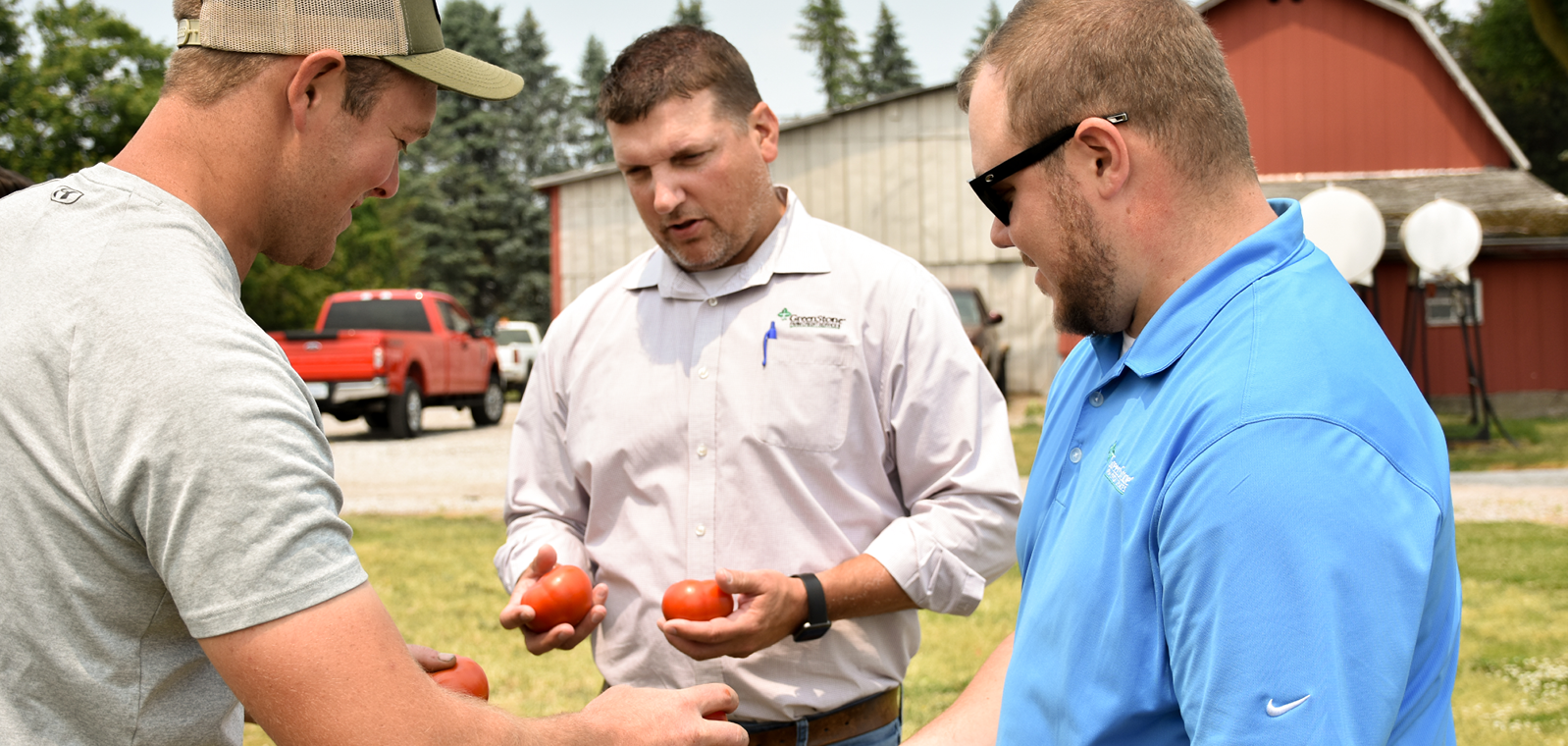
From keeping track of your financials, to writing up purchase agreements and making decisions about the future of your operation, there are many responsibilities outside of managing crops and livestock on a farm. Having a team of trusted experts on your side will help alleviate some of the stress and contribute to the success of a farm operation.
Loan Officer
Meeting your capital needs of the day-to-day operations, equipment, structures and real estate purchases, you may need to explore financing options. Having a loan officer who specializes in agriculture and can understand your operation is a contact you need in your phone.
A loan officer can help with structuring any loans you may need that best fit your operation.
How often should I speak to them? You should have regular contact with your loan officer, even in times you don’t need financing, to keep them involved in the direction your operation is growing. This will keep them in the loop on future financing opportunities and equip them with the information and knowledge to be able to assist when the need arises.
GreenStone’s team of financial services officers understand the unique needs of agriculture and are experienced in helping to find options to fulfill the financial needs of farming operations and rural communities.
Accountant
It’s important to have an accountant to help keep accurate business records that other members of your farm team will need, such as your loan officer. Having an accountant helps you focus on your day-to-day operations and lessens some of the stress record keeping can carry.
Your accountant can help keep your books up to date with all the expenses and incoming capital, along with end-of-year financial reports and tax planning.
How often should I speak to them? It varies! The more you keep up on your books, the easier it’ll be to provide your year-end financials to your lender and be aware of your financial situation throughout the year. Even having someone keep up with your operation’s financials once a month makes it easier at year-end, so you’re not stuck with a shoe box full of receipts.
Attorney
Another person you will want to be a part of your farm team is an attorney. A lawyer is there to assist you in writing purchase or rental agreements for your operation. Their expertise also extends into helping you work through a succession plan and can provide legal guidance and assistance for that transition and other business decisions.
How often should I speak to them? You should reach out to your attorney any time a legal binding document or agreement needs to be made, and when you’re evaluating operational decisions and farm transition plans.
Agronomist
Preparation for the growing season can be a long process. An agronomist specializes in crop production, soil control and management. Having regular soil testing done to help determine fertilizer needs will improve and maximize crop production. Having someone on your team with expertise to assist with crop scouting and consult on chemical and fertilizer application options can also help improve yields.
How often should I speak to them? You should check in with your agronomist before, during and after your growing season so they can test your soil, discuss the growing season, and provide recommendations for any applications or adjustments that need to be done.
Nutritionist and veterinarian
If you are a dairy or livestock farmer, you know the importance of having a nutritionist and veterinarian on your team.
A nutritionist can assist in monitoring your animals and how they’re reacting to certain feed types and make necessary adjustments if needed. Being present when your nutritionist is on farm can help grow the relationship with them so that they are a trusted advisor you can call on to keep you abreast of new ideas and products.
Veterinarians not only help with herd health and reproduction decisions but can also be an asset to have on the farm regularly to provide additional industry information.
How often should I speak to them? You will typically meet or speak with a nutritionist and veterinarian weekly to monthly depending on your operation.
Business consultant
When you decide it’s time to expand or change something about your operation, you want a business consultant in your corner to help you make those decisions. Business consultants can run through scenarios for your farm that other people on your team may not be able to.
Additionally, if you’re selling your crops, meat or value-added products directly to customers, business consultants may be able to assist you with marketing.
How often should I speak to them? You should contact your business consultant when you see opportunities for growth on your operation or when you have a question about how to best advertise your products.
Network of mentors and peers
A member of your farm team that may be overlooked is a mentor and/or peers who have been in the business for a while. Having a network of people you can approach with questions and call on their experience to learn from or gather ideas from can be helpful.
GreenStone offers a mentorship match through our CultivateGrowth program for young, beginning and small farmers. Learn more about how to get involved in the next cohort here.
How often should I speak to them? You should speak with your mentor frequently, especially when you have questions about your operations that they may be able to help with. Connecting through visiting each other’s farms can be insightful for both parties.
Look for peers that are also at the same stage you are in your farm journey. This is an opportunity to lean on one another and share new ideas that could help take your farm to the next level.
Having regular farm meetings with all members of your team of experts can help ensure that everyone understands the position and goals of your operation.
This article was originally published in Michigan Farm News.


